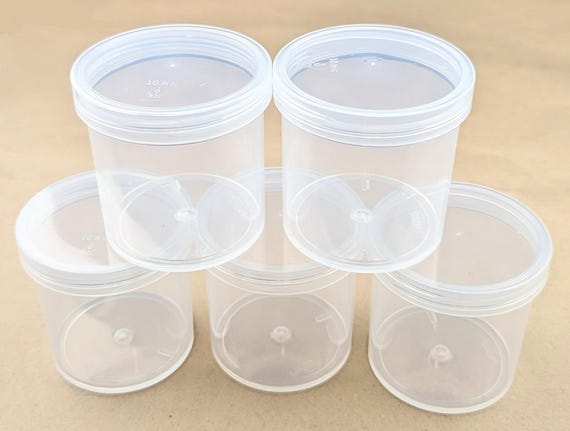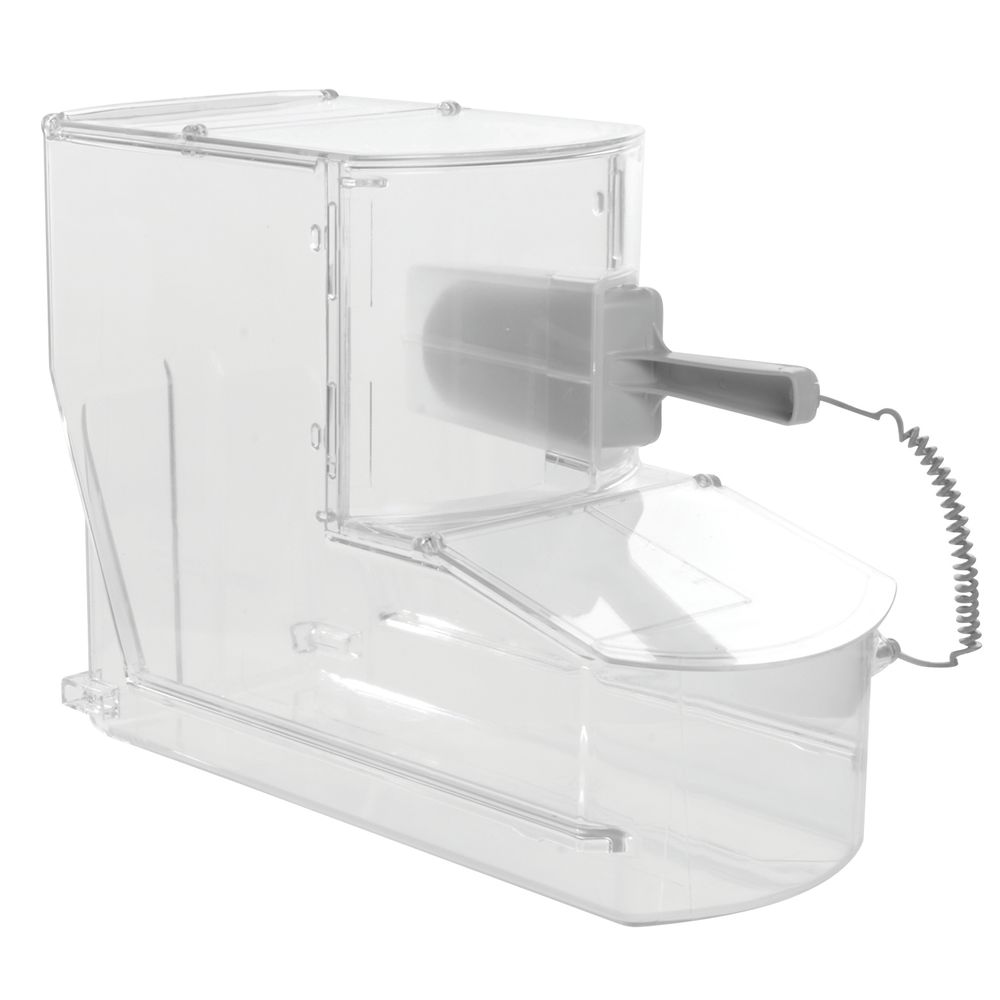Discover smart ways to use Bulk Plastic Containers in industrial settings
Wiki Article
A Comprehensive Overview to the Different Types of Mass Plastic Containers Available Today
Bulk plastic containers play a critical role in different sectors, using remedies for storage and transport. Their diverse types accommodate different demands, from inflexible alternatives for solid materials to versatile containers accommodating various shapes. Each type presents distinctive advantages, making it important to understand their applications and attributes. As markets advance, so do the demands for effective container options. What factors should one consider when choosing the appropriate bulk container?Review of Mass Plastic Containers

Sorts Of Mass Plastic Containers
Bulk plastic containers been available in various forms, each suited to certain applications. Rigid mass containers, versatile mass containers, and intermediate bulk containers represent the key categories, each offering distinct advantages. Understanding these kinds is essential for selecting the right container for transferring and keeping materials.
Stiff Mass Containers
Rigid bulk containers are vital for reliable storage and transportation of different products across industries. These containers are typically constructed from durable plastics, allowing them to withstand rough handling and ecological problems. They can be found in numerous forms and dimensions, including totes, drums, and containers, making them appropriate for saving every little thing from granular compounds to liquids. Stiff containers commonly include reinforced walls and protected covers, making sure the materials remain secured throughout transit. Their stackable layout maximizes storage space, making them suitable for stockrooms and producing centers. In addition, several stiff bulk containers are reusable and recyclable, adding to sustainability initiatives. Generally, their toughness and versatility make inflexible mass containers a crucial component in supply chain procedures.Versatile Bulk Containers
Versatile bulk containers, usually described as adaptable intermediate mass containers (FIBCs), work as a versatile solution for transporting and saving a selection of completely dry materials. These containers are typically made from woven polypropylene and are made to be light-weight yet strong, permitting effective handling and stacking. Their versatility allows them to accommodate various sizes and shapes, making them suitable for products ranging from grains to chemicals. FIBCs can be equipped with functions such as spouts for very easy filling and discharge, in addition to safety coverings for improved durability. Furthermore, they are reusable and recyclable, adding to lasting practices in industries like farming, food handling, and building. On the whole, flexible mass containers supply a reliable and cost-efficient option for mass product management.Intermediate Mass Containers
Intermediate bulk containers (IBCs) are necessary for the efficient transportation and storage of fluids and granular materials across numerous markets. These containers typically have an ability ranging from 275 to 330 gallons and are created for easy stacking and handling. Made from durable products like high-density polyethylene or steel, IBCs supply excellent defense against contamination and environmental variables. Their design consists of attributes such as a built-in pallet for forklift access and a removable top for very easy dental filling and cleansing. IBCs are extensively used in chemical, food, and pharmaceutical industries, making sure conformity with safety and security regulations. Their flexibility and reusability make them a cost-effective service for bulk storage and transport, adding to provide chain efficiency and sustainability.Attributes and Advantages of Bulk Plastic Containers
Mass plastic containers are vital tools in various markets, providing a mix of resilience and practicality. These containers are constructed from top quality materials, making them immune to influences, chemicals, and environmental aspects. This toughness assurances item security throughout storage space and transportation.Additionally, bulk plastic containers are lightweight, facilitating ease of managing and decreasing delivery costs. Their stackable style makes best use of storage efficiency, enabling maximized warehouse area. Several designs include safe and secure covers or closures, offering an impermeable seal that protects contents and avoids contamination.
Furthermore, bulk plastic containers are recyclable and frequently multiple-use, adding to lasting techniques. Their adaptability enables a wide variety of applications, from food storage to commercial usage, enhancing their worth throughout industries. Services take advantage of the long life expectancy and low maintenance needs of these containers, making them a cost-efficient option for both long-lasting and short-term demands.
Industries That Use Mass Plastic Containers
Different sectors benefit from using bulk plastic containers, each leveraging their distinct homes for particular applications. The food and beverage sector relies upon these containers for secure storage and transport of products, while the chemical production sector uses them for handling unsafe materials. In addition, the pharmaceutical circulation requires stress the importance of toughness and sanitation in product packaging solutions.Food and Drink Sector
As the demand for risk-free and effective storage remedies remains to climb, the food and drink market significantly counts on mass plastic containers for their functional requirements. These containers offer robust, lightweight, and flexible options for storing ingredients, ended up items, and waste products. Made from food-grade products, they ensure compliance with health and safety standards. Numerous styles, such as stackable bins and tote boxes, maximize room throughout transportation and storage, boosting logistical effectiveness. Furthermore, the transparency of some bulk containers enables for easy inventory monitoring, lowering the threat of putridity. With the industry's concentrate on sustainability, many suppliers are now offering recyclable and multiple-use options, straightening with environment-friendly practices while fulfilling the high demands of food safety and security and hygiene.
Chemical Production Field
The chemical production sector depends heavily on mass plastic containers for the reliable and safe storage space of resources, intermediates, and completed products. These containers are created to withstand numerous chemicals, making certain that Read Full Report harmful products do not leak or break down the container itself. Common types include high-density polyethylene (HDPE) and polypropylene containers, which provide excellent chemical resistance and sturdiness. Their lightweight nature and stackable style assist in transportation and storage, optimizing space in producing facilities. Additionally, several bulk plastic containers feature functions such as tamper-evident seals and easy-to-read labeling, improving safety and security and conformity with market laws. In general, bulk plastic containers are integral to the chemical manufacturing procedure, providing trusted options for taking care of diverse materials.Pharmaceutical Circulation Requirements
Pharmaceutical circulation counts on mass plastic containers to satisfy rigid safety and security and regulative demands. These containers are necessary for keeping a range and transferring of pharmaceutical items, consisting of active pharmaceutical active ingredients (APIs) and completed medicines. Their design guarantees security against wetness, light, and contamination, maintaining the integrity of delicate products. In addition, mass plastic containers are certified with sector standards such as Excellent Manufacturing Practices (GMP) and are often made from materials that are FDA-approved. The use of these containers enhances effectiveness in the supply chain, enabling risk-free, large-scale distribution while minimizing waste. Companies in the pharmaceutical sector focus on using long lasting, leak-proof, and tamper-evident containers to guarantee product security and top quality throughout the logistics procedure.Considerations for Choosing the Right Container
When picking the suitable mass plastic container, different factors have to be very carefully weighed to assure suitable functionality and safety. The nature of the products to be kept is paramount; compatibility with the container's product can affect stability and safety. Bulk Plastic Containers. Additionally, the container's shapes and size must align with the storage and transport needs, assuring efficient space applicationLots capability is one more important consideration, as it needs to suit the weight of materials without danger of damage or failure. The design attributes, such as venting or covers, can influence functionality and access. Conformity with market laws is vital, specifically in industries like drugs, where safety requirements are rigorous.
Lastly, the anticipated lifespan and durability of the container must be assessed to validate it meets the functional demands without frequent substitute. By assessing these variables, one can select the most suitable bulk plastic container for particular read here applications.
Ecological Effect and Sustainability
As organizations progressively prioritize sustainability, the environmental effect of bulk plastic containers has come under analysis. These containers, often made from materials such as polyethylene or polypropylene, contribute significantly to plastic waste if not handled correctly. Their production involves the consumption of fossil fuels, which can lead to increased greenhouse gas emissions. However, developments in reusing technology and the development of eco-friendly alternatives are helping to alleviate these problems.Furthermore, lots of suppliers are adopting methods that stress the usage of recycled materials, thus minimizing the need for virgin plastics. The sturdiness of mass plastic containers likewise plays a function; they are designed to be reused several times, which can decrease their total environmental impact when compared to single-use options. Inevitably, the sector deals with the challenge of balancing capability with environmental obligation, making sustainable practices vital for the future of mass plastic containers.
Ideal Practices for Storage and Transport
Reliable storage and transportation of bulk plastic containers significantly affect both functional efficiency and sustainability. To make the most of space, organizations need to pile containers securely, assuring stability and stopping damages. Appropriate labeling is essential for very easy identification, which improves retrieval Go Here procedures. Additionally, preserving a tidy and orderly storage space location reduces the danger of contamination and boosts safety and security.For transportation, selecting the best automobile is crucial; containers ought to be protected to prevent changing throughout transportation. Firms should also take into consideration utilizing pallets to facilitate simpler loading and discharging. Routine assessments of containers for damage can prevent costly substitutes.
Temperature level control is another essential aspect, as extreme conditions can compromise the integrity of the plastic. Lastly, training workers on finest techniques for handling and transportation guarantees compliance and promotes a culture of safety. By implementing these best techniques, companies can enhance their operational efficiency while adding to ecological sustainability.
Often Asked Questions
Exactly how Do I Clean Mass Plastic Containers Successfully?
To clean mass plastic containers successfully, one ought to wash them with warm water, make use of a moderate detergent and scrub with a soft brush. Wash completely, after that enable to air dry entirely before storage or reuse.What Is the Life-span of Bulk Plastic Containers?
The life-span of bulk plastic containers typically varies from 5 to 10 years, relying on the material, use, and ecological conditions. Appropriate upkeep and storage can greatly extend their functionality and longevity gradually.Can Mass Plastic Containers Be Customized?

Do Mass Plastic Containers Have Warranty Options?

Are There Regulations for Using Bulk Plastic Containers?
Yes, guidelines exist for using mass plastic containers, mostly concentrated on safety and security, ecological influence, and product conformity. These guidelines ensure that containers satisfy industry standards and appropriate for carrying different substances safely and efficiently.Inflexible mass containers, versatile bulk containers, and intermediate bulk containers represent the primary groups, each offering one-of-a-kind benefits. Versatile bulk containers, typically referred to as versatile intermediate bulk containers (FIBCs), offer as a functional remedy for keeping a range and transferring of dry products. The chemical production industry relies greatly on mass plastic containers for the efficient and secure storage of raw products, intermediates, and completed items. plastic bulk containers. These containers are developed to withstand different chemicals, guaranteeing that unsafe materials do not leak or break down the container itself. Additionally, mass plastic containers are certified with market criteria such as Good Production Practices (GMP) and are frequently made from products that are FDA-approved
Report this wiki page